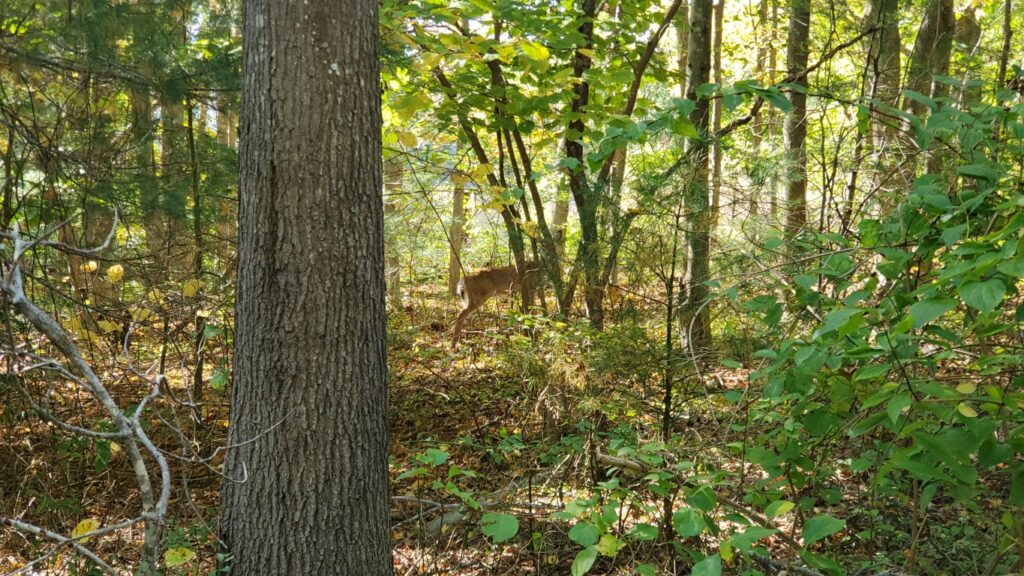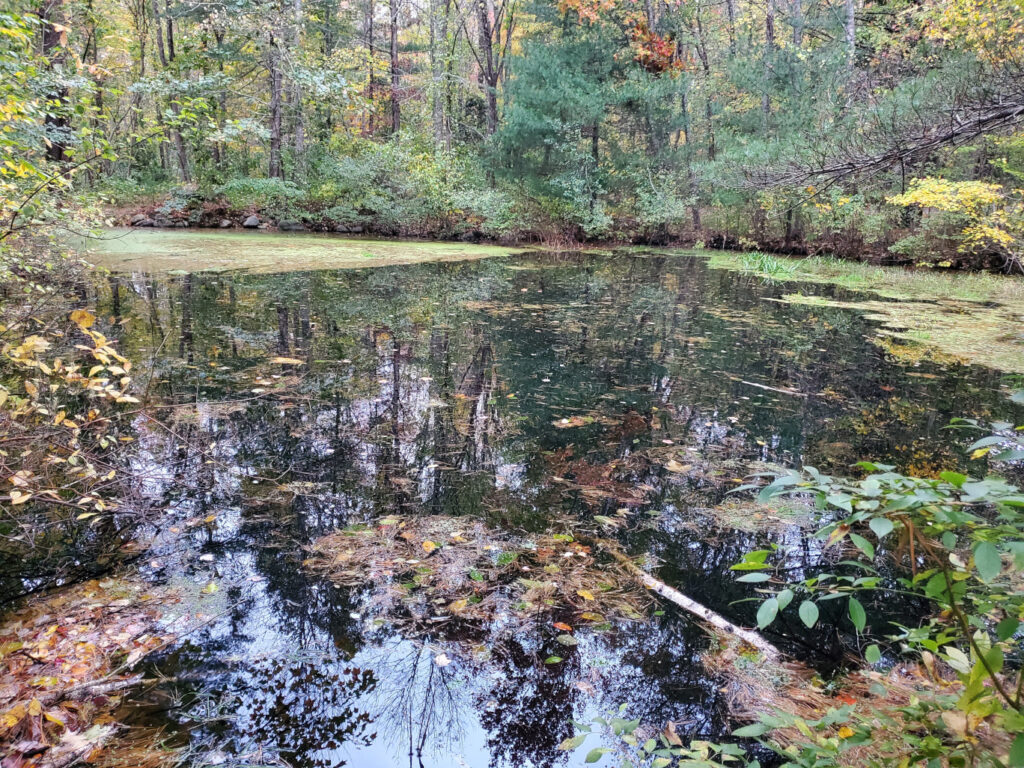What do I need to know about Wetlands when buying or selling real estate?
We noticed that buyers and their agents, and others, even local, can be a little confused about Wetlands and what they mean for a property.

Disclosure: For transparency and honesty, please keep in mind that, over the years, we bought and sold several properties with Wetlands, and we plan on more. While it could mean that we are biased, it should also prove that we know the benefits of Wetlands and know them well. So far, Wetlands have never ultimately made any deal more difficult, but sometimes we meet and deal with people who are very misinformed and make many assumptions, to their ultimate detriment. It usually turns out to be more of a problem for them as they miss out than for us, as we have always successfully sold all our properties that included wetlands. Clearly, not knowing the advantages and disadvantages of wetlands doesn’t always help make good deals.
The information in this article comes from our professional experience and knowledge not as a Wetland experts, but as real estate investors. As such, we have a definite interest in assessing the projected risk and rewards of a potential acquisition and protecting and enhancing its value.

Pros & Cons
Wetlands, like everything else that could be on a property, come with pros and cons, whether you already own a lot or you’re considering purchasing it.
The big negative!
Let’s start with the big downside:
You can’t build on Wetlands!
It would be practically impossible anyway, or very costly and difficult, but on officially designated Wetlands, laws at all level of government make it impossible to legally build, with heavy legal and financial consequences for violators.
If you have them on your property, you definitely can’t build. If you read on, you’ll understand why you also shouldn’t.
First big positive!
However, here comes the first upside:
Nobody can!
Not your neighbors, not the government, nobody!
That means you won’t see annoying structures being erected on nearby Wetlands, on your property or not, that would violate your privacy and affect the appeal and value of your property.

List of other pros:
Now, a list of other positives not really countered by negatives, just pros with hardly any downside to the presence of Wetlands, large or small:
- Wetlands self-manage and maintain themselves, in a delicate but well-balanced ecosystem, so there is no upkeep of any kind for the landowner.
- Wetlands improve water quality; they are the kidneys of the landscape, filtering water by capturing runoff and stripping it from contaminants, pollutants, and sediment like nitrates before releasing them into underground aquifers, rivers, streams, and other outlets. They process wastewater and stormwater chemically, biologically, and physically in a very cost-effective and natural way compared to multimillion-dollar treatment plants. So, they produce clean water.
- Wetlands Control Local Erosion; they protect ponds and streambanks from erosion. The roots of wetland plants hold soil in place and can reduce the velocity of water currents. Filter and control upland runoff.
- Wetlands provide Flood Control; soaking up, storing, processing, and then releasing floodwater. They mitigate large flood events, like heavy rain and snow melts, in a natural and cost-efficient way.
- Wetlands enhance a biodiverse, Safe Habitat for Wildlife, especially threatened and endangered species. Wetlands cover approximately 5% of the land, yet 35% of threatened and endangered species live in Wetlands only. An additional 20% use Wetlands at some point in their lives. Over 50% of the 800 species of protected migratory birds in the U.S. rely on Wetlands.
- Protection From Drought; Wetlands release stored floodwaters during droughts and soften the impact on nearby land and ecosystems of extended dry spells.
- Water Source; Wetlands can enhance water supply by serving as reservoirs for the watershed and releasing retained water into surface water and ground water.
- Recreation; Wetlands can become a destination for outdoor activities such as hiking, fishing, bird watching, photography, research and education, and hunting. Archery, Riding and Walking dogs are some examples of many more that could be listed here. They are all Passive activities, not Active, meaning that they do not impact, modify, or transform the ecosystem.
- Education; Wetlands protection activities provide meaningful opportunities to educate the public regarding Wetlands science, Wetlands protection, and the value of water resources.
- Aesthetic Appeal; Wetlands provide a visual value and are often incorporated as features within landscape design. The beauty of nature, beautiful vegetation and interesting wildlife, can be very well be observed in Wetlands.
- Social focus: Wetlands can be the focal point of community interest and activities, involving businesses and individuals.
- Wetlands can Mitigate Climate Change. First line of defense from the effects of climate change and first affected. They store carbon, possibly better than forests. This is a topic that an increasing number of people are considering very important or even critical.
- Added Value; In the end, the sheer peace, quiet, and calmness of Wetlands enhance the value of nearby land and dwellings. This precious environment certainly brings great benefits to the mental wellbeing of the people who enjoy it.
- Mosquito, Tick, Parasite and Pest Control; undisturbed, not contaminated Wetlands biological dynamics naturally control the proliferation of unwanted parasites, pests, and carried diseases.
- Federal funding and various grant programs are available for the preservation of Wetlands. Something worth checking out for landowners with Wetlands on their real estate.
Conclusion:
That’s a total of 1 negative and 16 positives for Wetlands, which vary depending on the perspective of private property owned, for sale, considered for purchase or in general as present on the local territory. And there are probably more.
And remember: Wetlands don’t mean just mud all the time! They can be dry and easy to enjoy!
Wetlands are a “wet” resource for landowners, neighbors, and community, because we all benefit from clean air and clean water!

In the case of our house for sale in 2022, 731R Grove St, Norwell, MA – 02061, it’s not a coincidence that professor, naturalist, and author William Gould Vinal (Cap’n Vinal) built a personal retreat near the local Wetlands in Norwell, MA. By building the cabin in the present location, he created the ideal place for calm, quiet, inspiration, and for writing about nature in the many books that made him famous and very respected locally and nationally. He was very inspired, motivated, tireless and prolific in his writing. That’s why there are streets and schools named after him.
The cabin was in the middle of nature, near a pond, yet not far from Norwell life, on the edge of these Wetlands. The cabin was designed and built with large windows on all sides and the ability to stay for prolonged periods of time, access to clean water via a stone well and a powerful heat source like the beautiful stone fireplace built in the center of the 400-square-foot cabin with solid oakwood floors. A perfect retreat for a busy author.
This cabin found the right owners in 2022. They’ll use it as they deem fit, but hopefully respecting the historical value and meaning of this fascinating structure married for so many years to the Wetlands just below..




